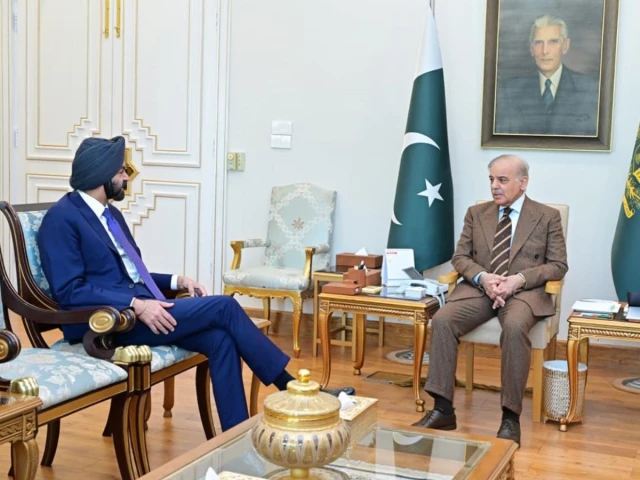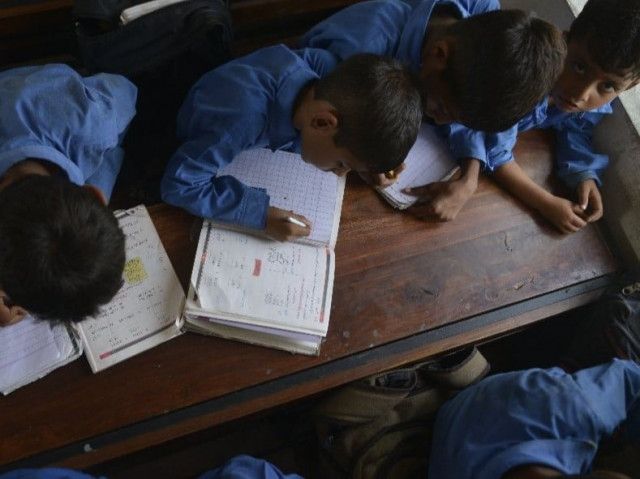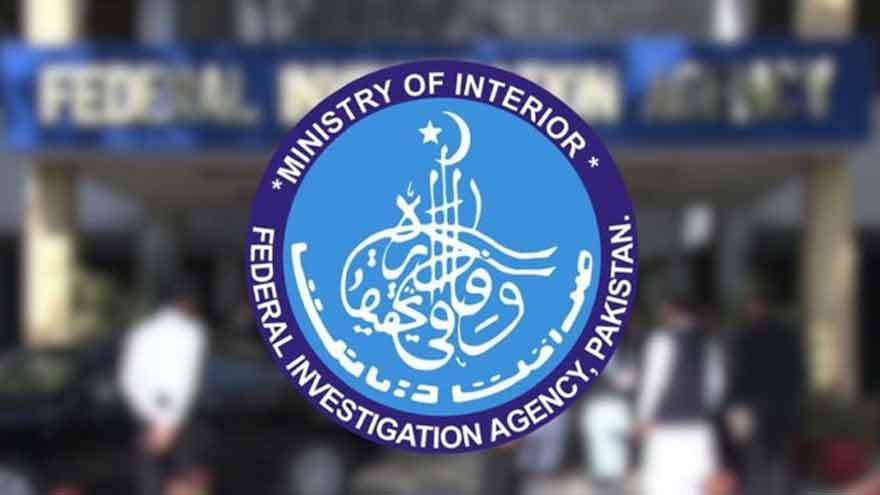Discusses commitment to deepening cooperation under the ‘One World Bank Group’ initiative
World Bank Group President Ajay Banga calls on Prime Minister Shehbaz Sharif PHOTO: PID

Discusses commitment to deepening cooperation under the ‘One World Bank Group’ initiative
World Bank Group President Ajay Banga calls on Prime Minister Shehbaz Sharif PHOTO: PID

World Bank Group President Ajay Pal Singh Banga, accompanied by Federal Minister for Finance Muhammad Aurangzeb, visited the historic Taxila Museum on Monday. Provincial Minister for Local…

Students attend a class at a school on International Literacy Day in Lahore. PHOTO: AFP
Pakistan remains the lowest-ranked country in South Asia for…

A petroleum company involved in the country’s largest-ever recovery case, linked to a loss of PKR 47 billion to the national treasury, has started making payments, officials confirmed.
Head of FIA Karachi’s Corporate Crime Circle, Ayaz Mehr,…

KARACHI (Dunya News) – A petroleum company responsible for the country’s largest-ever recovery case, involving a loss of Rs 47 billion to the national treasury, has begun making payments.
Ayaz Mehr, head of the…